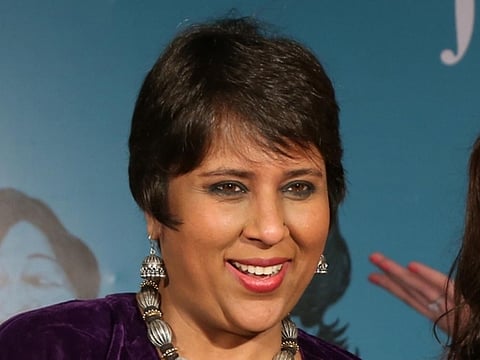Repressing Barkha Dutt is a shortsighted attack on free speech
India’s Home Minister must take serious note of threats to one of India’s best known journalists

Shocking revelation by award-winning Indian TV journalist Barkha Dutt Thursday that she has received chilling veiled threats and “messages” from powerful people in the ‘establishment’ are deeply unsettling. In a tweet storm, Dutt said that she and her family were under surveillance - and efforts to smear and malign the top-rated anchor were ongoing.
Formerly with NTDV, Barkha Dutt is presently a Contributing Columnist for The Washington Post and Contributing Editor for The Week. In one of her tweets she requested India’s Information and Broadcasting Minister Rajyavardhan Rathore to take note of the chilling threats.
Free expression is the bedrock of all liberties. The Constitution of India provides the right to freedom under Article 19 which guarantees the Freedom of speech and expression, as one of its six major freedoms. It is appalling that the ‘establishment’ in India would want to stop a journalist from starting a new project simply because they disagree with her point of view or body of work. Notably the Indian media landscape was abuzz with news that the star journalist is set to launch her own English news channel.
Be as it may, antipathy towards people with a differing viewpoint is not new in an era of polarized opinions on Twitter and Facebook. On any given day plenty of liberal and progressive journalists spar with a growing rightwing troll army on social media. The issues range from local municipal elections to the politics of Prime Minister Narendra Modi.
The latest allegations by Barkha lower the bar further. The atmosphere of fear and bullying points to a shift towards the politics in which feelings trump facts more freely and with less resistance than used to be the case earlier. The threats on Dutt come close on the heels of UN human rights experts calling on authorities in India to ‘protect’ another journalist Rana Ayyub, who received death threats following an online hate campaign.
NDTV's Ravish Kumar, among India’s finest news anchors, recently alleged that the frequency of death threats against him have increased manifold in the last few weeks. Last year, noted journalist Gauri Lankesh was shot dead outside her home in Bengaluru in South India.
As per the Committee to Protect Journalists, between 1992 and 2018, around 47 journalists have lost their lives in India. Taking note of the attacks on media persons in India, UNESCO’s Director-General Irina Bokova remarked in 2017, "Any attack on the media is an attack on the fundamental right to freedom of expression of each member of society."
India encodes freedom of expression as a constitutional right. These freedoms – of free press, expression and views – are hard-earned. The country’s home minister Rajnath Singh, must take serious note of threats to Barkha Dutt and other journalists. A democracy does not need to fear dissent. Honest disagreement is often the highest form of patriotism.


